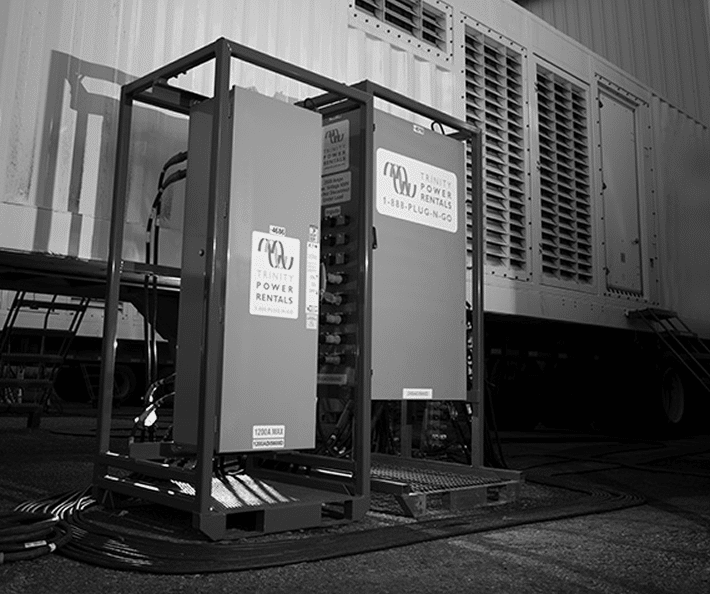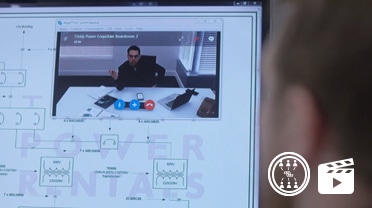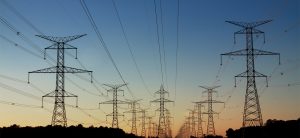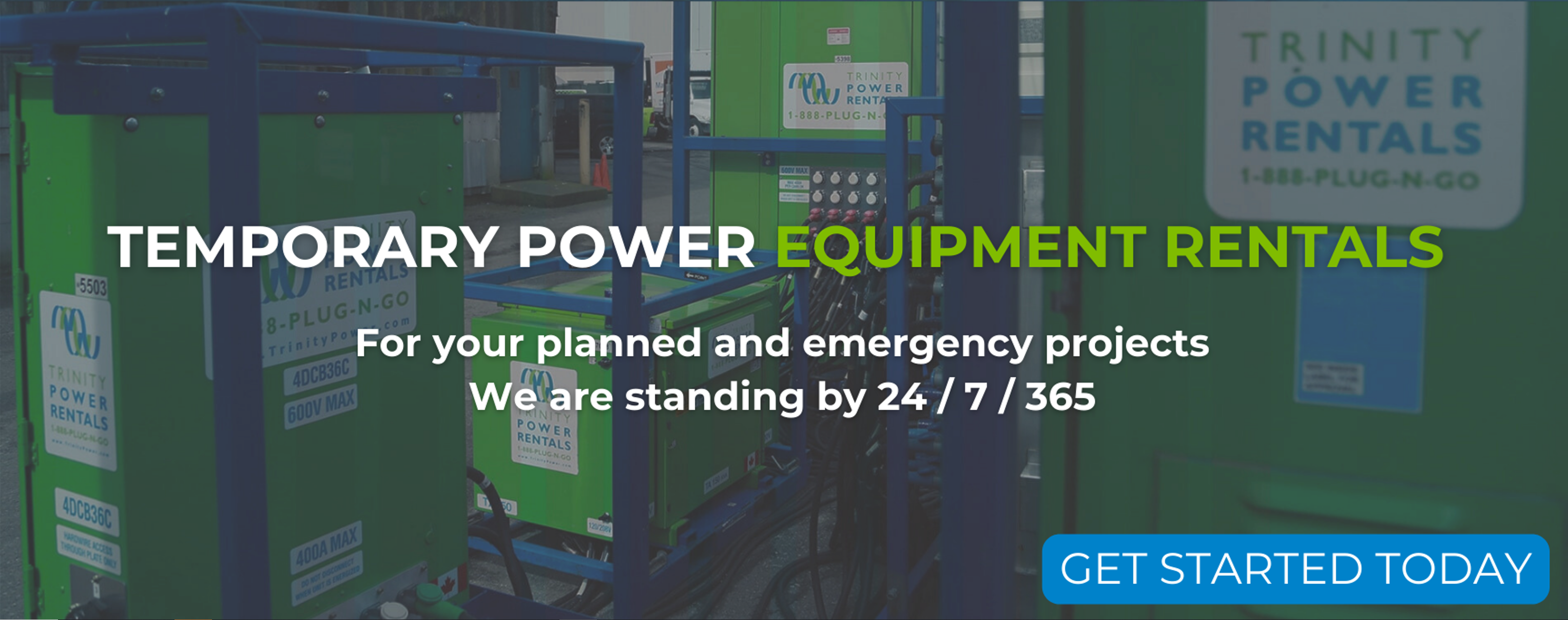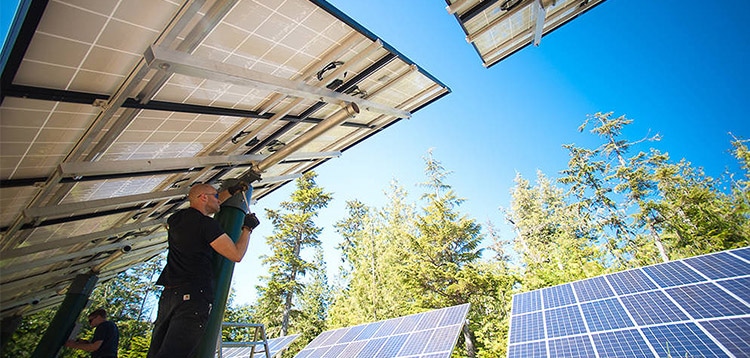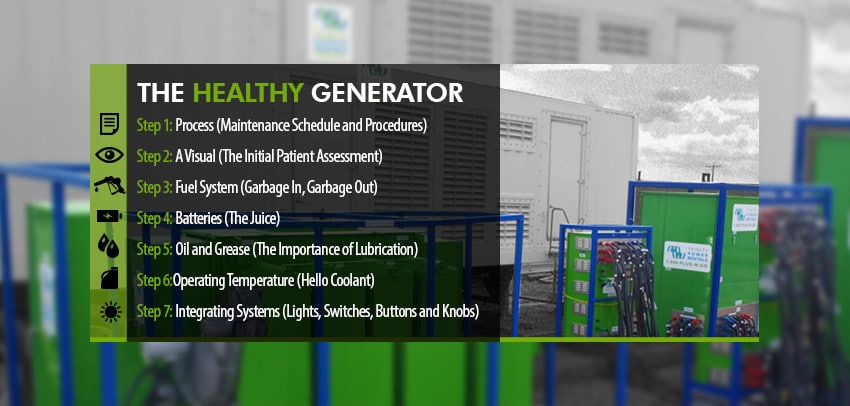-
Delivery • Setup • Support
-
Toll Free
1-888-758-4646
-
Call Us Now
1-888-758-4646
-
- OUR APPROACH
-
COMMITTED TO YOUR SUCCESS
Our approach, developed over decades of experience, is fine-tuned to get the results you want.
We deliver concept-to-completion solutions, designed by temporary power specialists with access to the largest inventory of high-quality power generation and distribution equipment in North America.
-
- Equipment
-
RENTALS
From a wide range of diesel and natural gas generators to transformers, cable, light towers and more, our large rental fleet and extensive vendor network ensure we’ll have the temporary power equipment that your project requires — every time.
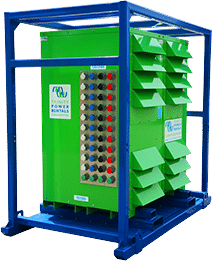
-
- Industries
-
INDUSTRIES WE SERVE
For nearly 20 years, we have been at work powering projects across Canada’s industrial sectors.
Select from this sampling of industries to learn how we can put our expertise to work for you.
VIEW ALL- Projects
- About
-
A PROUD HISTORY. A BRIGHT FUTURE.
From our inception in 1998, we have been building our team on a foundation of excellence. Our team members’ passion, expertise and commitment are what have allowed us to grow into a national company with projects across Canada.
Click on the links to learn more about our history, our team or our career opportunities.
- Blog
- Contact
-
Table of Contents:
- Keep Your Jobsite Safe
- Have An Easy Backup Power Solution
- Make Sure Your Business is Prepared
- A Cost-Effective Power Solution
In August of 2015, BC’s South Coast experienced its worst storm in a decade. Strong winds toppled trees throughout the Lower Mainland, leading to impassable roads, a compromised transit system and a massive power outage. BC Hydro estimated that 500,000 customers lost power on the day of the storm. Several thousands of those customers were still without power two days later.
What is a Generator Docking Station?
A generator docking station connects a portable generator to an existing electrical system without the hassle of dealing with cables everywhere. Often pre-wired for quick connection, docking stations can reduce power setup time from hours to minutes, making it invaluable for efficiently handling power outages.
Paired with a manual or automatic transfer switch, a generator docking station provides reliable temporary power to keep your project running smoothly.
We talked to Evan Morris, a Vancouver-based electrical engineer, about why your customers should consider installing a generator docking station.
Keep Your Jobsite Safe
Keeping employees and site visitors safe should be a top priority for any business. Without a generator docking station, a power cable will have to be run from a generator to the electrical room, which might not be located in a convenient location. This can mean running power cables across the facility, up stairways, or through doorways, which creates tripping and electrocution hazards. Using a docking station is, “a lot cleaner and quicker to restart power, and it’s a lot safer,” explains Morris.
Have An Easy Backup Power Solution
Not having a backup power solution in place could cost a business a great deal of money. Morris provides an example: “Let’s say a business has a deadline. They could miss a major milestone due to work stoppages.”
According to an often-cited report by the Electrical Power Research Institute (EPRI), power outages cost U.S. businesses an estimated $104 billion to $164 billion per year. Sectors that are particularly vulnerable include the Digital Economy, Continuous Process Manufacturing and Fabrication and Essential Services.
Having a generator docking station installed means that a business can quickly hook up a temporary generator, and continue to operate as usual; this means milestones are met, minimal loss of data or operating hours, and no waiting for BC Hydro to come to the rescue.
Make Sure Your Business is Prepared
While the Lower Mainland’s mass outage last August was not the norm, it is not a matter of if an outage will occur, but when. Allianz Global Corporate and Specialty (AGCS) predicts that power outages are on the rise, globally, in part due to aging infrastructure.
In BC, the risk of an outage will vary depending on where a business is located. “A lot of various parts of the province have relatively poor power reliability,” says Morris. For example, “remote areas of the province, particularly mountainous areas, where there are a lot of storm outages and tree falls on the power lines.”
This sentiment is echoed in a BC Hydro report that found that remote areas of the province, such as Haida Gwaii, go without power for up to 36 hours a year.
Given this data, having a backup power solution becomes especially important for businesses in remote areas. “Businesses in areas where they suffer from frequent outages, if they don’t have electricity, they can’t do business,” says Morris. “Even some fast food places in the north of the province have backup generator connections.”
A Cost-Effective Power Solution
Morris explains that while critical infrastructure, such as hospitals, will generally have a permanent backup, this option can be costly. “You can get expensive systems where there’s a permanent generator, and if you get really fancy, they’ll have a battery backup inverter to ensure the power supply is continuous,” he explains.
In fact, according to Consulting-Specifying Engineer Magazine, it can cost roughly $57,000 USD to install a permanent 100kW generator. This represents a huge cost to many business owners.
In contrast, a temporary generator docking station for a 100kW generator might cost $16,000 USD to purchase and install, leaving only the cost of generator rental and fuel to consider.
For many businesses, this is a much more reasonable price to pay for the certainty that they’ll be able to keep running when the grid fails them.
Related Articles
Subscribe for Access to Exclusive Content
Get insider updates, industry news, special equipment offers, and expert tips—directly to your inbox.
"*" indicates required fields
